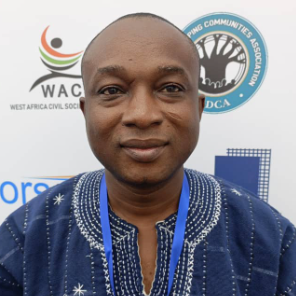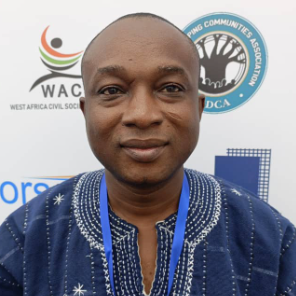
Mental Health in Ghana: Community Resilience & Local Innovation for Global Collaboration
Mental Health in Ghana: Community Resilience & Local Innovation for Global Collaboration
Pricing
Information
Recorded
-
-
Description
This session will provide a powerful and evidence-based exploration of the mental health landscape in Ghana, highlighting both the challenges and emerging opportunities within the context of a rapidly evolving global health environment. Drawing from over a decade of community engagement and service provision led by Peter Mintir Amadu, this session will spotlight how local innovation, grassroots advocacy, and trauma-informed interventions are transforming lives in underserved communities, particularly among youth, women, and other vulnerable populations through Total Life Enhancement Centre Ghana (TOLECGH).
Participants will gain a comprehensive understanding of Ghana’s current mental health system; its gaps in accessibility, infrastructure, funding, and professional workforce; and the socio-cultural barriers such as stigma and traditional beliefs that often deter help-seeking behaviors. The session will further delve into the design and delivery of culturally grounded mental health and psychosocial support (MHPSS) interventions that are aligned with both international frameworks and indigenous needs.
Attendees will be introduced to TOLECGH’s ART-LE/PE model (Advocacy - Rehabilitation, Therapy – Livelihood Empowerment/Positive-Policy Engagement), which bridges clinical care and community resilience. Key initiatives, including school-based mental health advocacy/education, support for women in alleged witches’ camps, drug rehabilitation for ghetto youth, and MHPSS in peacebuilding, will be analyzed for their scalability and global relevance.
By attending this session, mental health professionals, educators, policymakers, and global health partners will acquire actionable insights into effective cross-sector collaboration, culturally sensitive program design, and sustainable mental health system strengthening. It will offer both inspiration and tools to replicate or adapt similar strategies in other low-resource or post-conflict settings.
Educational Goal
Learning Objectives
Participants will be able to:
-
Describe the mental health landscape in Ghana by identifying key trends, national policy frameworks, and the prevalence of mental health conditions, especially among youth, women, and marginalized populations.
-
Analyze the impact of TOLECGH's community-based interventions, including trauma- informed care, MHPSS in peacebuilding, school mental health advocacy, support for alleged witches, SGBV survivors, and drug abuse rehabilitation in urban ghettos.
-
Evaluate the systemic and socio-cultural barriers affecting mental health care delivery in Ghana, such as stigma, limited funding, service inaccessibility, and human resource gaps.
-
Identify strategic opportunities for international collaboration that support culturally grounded Mental Health and Psychosocial Support (MHPSS) models and enhance service usability and reach.
-
Formulate a multi-sectoral roadmap for promoting mental health equity in Ghana through evidence-based advocacy, digital integration, livelihood empowerment, and inclusive policy reforms.
Target Audience
- Addiction Professional
- Counselor
- Marriage & Family Therapist
- Nurse
- Physician
- Psychologist
- Social Worker
Presenters
Financially Sponsored By
- GXC Events - The Global Exchange Conference
